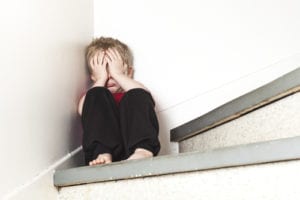It isn’t always easy to see the effect a grown up addiction is having on the life of a child. Some of these examples may seem black and white, but the grey areas are not difficult to imagine. Children are affected by a parent’s moods, behaviors, words, attitudes, and choices. When a parent brings their addiction into the home, children are the first to suffer as:
Accomplices
In their hearts, despite what a parent does, a child still loves them. Children see their parents as better or happier once the parent uses their drug of choice. To avoid watching their parent suffer, get angry, or whatever the negative consequence, a child will help the parent get more drugs. Using a child to get drugs can go to extreme places, all of which are forms of abuse.
Punching Bags
Literally and figuratively, children can become an addicted parent’s punching bag. An intoxicated parent with unmanageable anger or rage might take to physical abuse of a child for punishment. Additionally, a parent may hit a child with emotional blows. Venting to a child is a form of abuse. A child is not prepared to take on, detach from, or make sense of adult emotions and stress. Children can fall into thinking their role in life is to meet everyone else’ emotional needs. Not yet knowing their own, they may spend more time supporting other than learning what they need for themselves.
Caregiver
Parentification is a term that refers to when the child is given parental qualities for which they are not adequately equipped. For a parent that is too incapacitated to cook dinner, take younger siblings to school, or call a doctor when necessary, there is usually a child who has to step up. Parentification takes on another, more harmful role, that causes emotional stresses later in life for the child. In addition to attending the parent’s physical needs, the child becomes responsible for attending to the parent’s emotional needs. Like a nurturing loving parent, the child takes care of, makes excuses for, tends to, and supports their adult parent though they are not one. This can lead to codependency, entering abusive relationships, and strenuous perfectionism.
Silent Majority
Children in addicted households are often silenced. Not of legal age to take action, a child’s voice becomes lost. Often, a child is closely monitored in their home time communication, in case they should tell someone about their parent’s problem. Likely, if the child says anything threatens to say anything, they receive physical or emotional abuse.
Avalon By The Sea offers intensive family therapy sessions as part of the treatment program for both mental health and substance use disorders. One of California’s only certified dual diagnosis treatment centers offering primary diagnosis treatment for mental health, Avalon offers the highest quality of care. For a confidential assessment or more information on our programs, call 1 (888) 958-7511.











